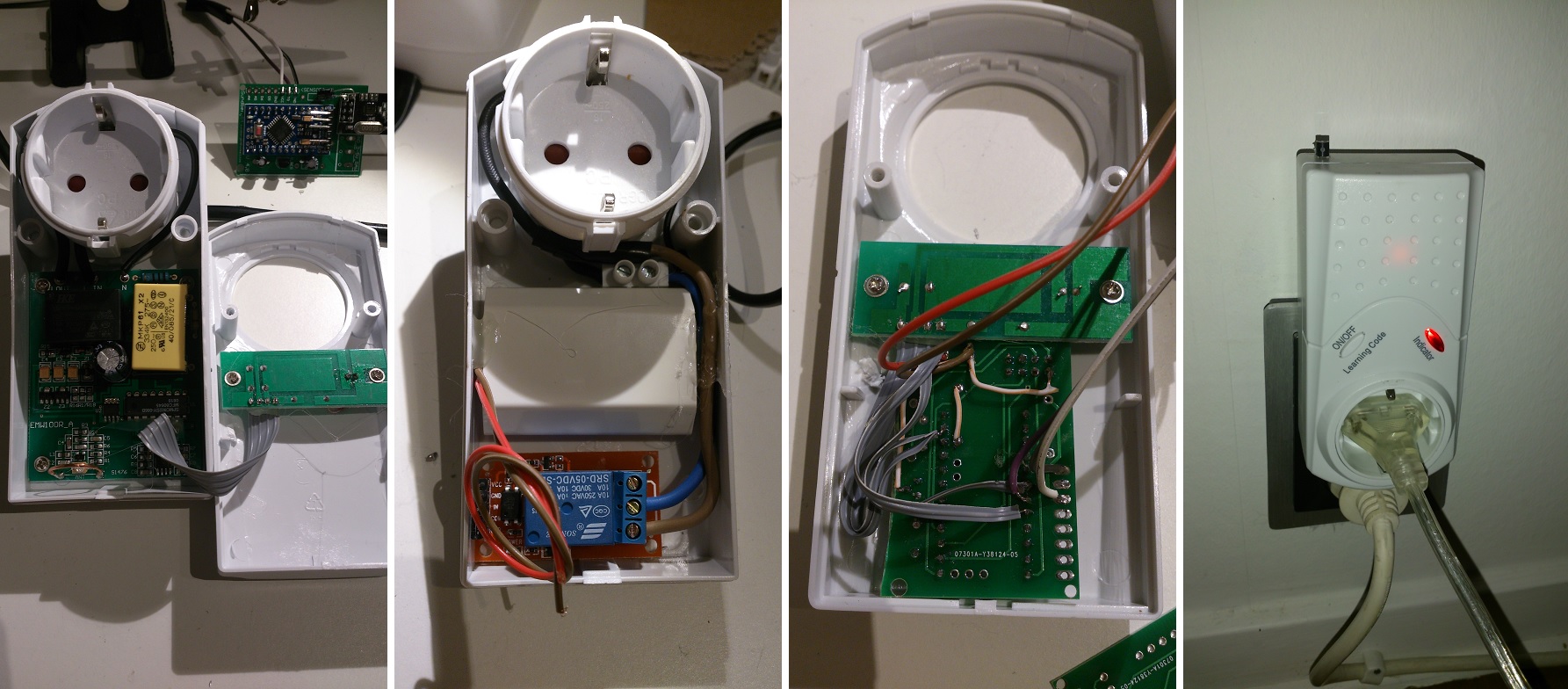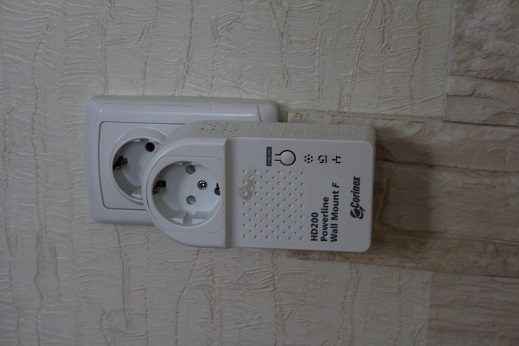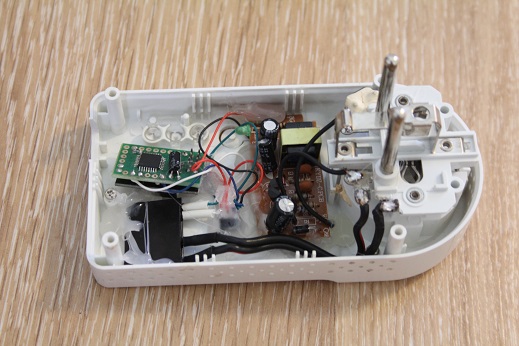$8 Lamp (Outlet) "Smart Plug" Module
-
It was only to test coil failure and see if it was a power issue :)
@sundberg84 A self fulfilling prophecy :-)
-
Hi,
any possibility of including a push button to manually trigger the switch on and off as well?
And if possible update Vera on the status change.This way i can make it Wife safe and not get kicked out of the house...
I'm not good with coding but if someone can point me in the right direction please...
@Mohsin-Hassan said:
Hi,
any possibility of including a push button to manually trigger the switch on and off as well?
And if possible update Vera on the status change.This way i can make it Wife safe and not get kicked out of the house...
I'm not good with coding but if someone can point me in the right direction please...
We are discussing this over here: http://forum.mysensors.org/topic/1607/safe-in-wall-ac-to-dc-transformers
You want to be careful you use the right transformer so you don't burn your house down. :) The wife probably wouldn't appreciate that.
I really want to do this too. I'm just waiting for the experts to weigh in on which transformer is safe.
-
@petewill @Moshe-Livne . Coil activates when i try with a 9v battery, so either bad/cheap relays or to weak power plug. All measures +5v but its not enough. Ill order some new relays.
@sundberg84 said:
@petewill @Moshe-Livne . Coil activates when i try with a 9v battery, so either bad/cheap relays or to weak power plug. All measures +5v but its not enough. Ill order some new relays.
So strange that it's not working. What is the power rating of your 5V transformer? Do you have a picture of your set up?
-
I dont reallt wants to admit it...
Well, I ordered the 5v relay from ebay (i have the reciept!) and looking at petewill video it says SRD-05VDC-
Looking at mine it says SRD-12VDC so probalby the sent me a 12v relay...New one will arive soon i hope :) Thank you for the help and sorry for clogging the thread.
-
I dont reallt wants to admit it...
Well, I ordered the 5v relay from ebay (i have the reciept!) and looking at petewill video it says SRD-05VDC-
Looking at mine it says SRD-12VDC so probalby the sent me a 12v relay...New one will arive soon i hope :) Thank you for the help and sorry for clogging the thread.
@sundberg84 that makes so much sense! And its not even your fault! :-)
-
I dont reallt wants to admit it...
Well, I ordered the 5v relay from ebay (i have the reciept!) and looking at petewill video it says SRD-05VDC-
Looking at mine it says SRD-12VDC so probalby the sent me a 12v relay...New one will arive soon i hope :) Thank you for the help and sorry for clogging the thread.
-
@sundberg84 said:
Hi @petewill!
I made this :) Great video :+1:I think i get bad reception or something because it works the first 5-6 times and then nothing...
This could also be a power or a wiring issue. But, the antenna is an easy modification so it wouldn't hurt to try this first. Another test is to move the device closer to your gateway. If it still stops after 5-6 times then it probably isn't communication issues.
In the end you describe an cat5 wire added as antenna because of bad reception.
Do you remove the plastic/shielding so its just copper?
Im afraid to short anything out with a long uncovered antenna if thats the case...No, I left the shielding on the wire. Sorry, I should have specified that.
and if i hear you right its 3,28 inches which should be 33,31200 millimeters on the antenna?
I think 3.28 inches is 83.312 millimeters (at least that's what google says it is).
-
@petewill
Just out of interest: how did You come up with the length for the antenna?
I remember vaguely that You can calculate the length if You know the
used frequency but You connect Your wire to an already existing PCB-Antenna...Christoph
@hyla I actually recently did a separate video on how I do this with a little more explanation. If you're interested it's here:
In summary, I measured the length of the existing antenna on the PCB then added additional wire to get it up to the required length for the 2.4GHz range (4.92 in).
-
Thanx :)
Meanwhile I did some research too. The formula (as You all know :) ) is:
Lambda (m) = c(m/s) / f(1/s) with
c= 299711000 m/s
f= 2.400.000.000 hzwhich comes down to 0.1248795833333333 m or roughly 4.92 in
The 1.64 in that are used on the PCB are actually Lambda/3.Nicely done, Pete :)
C.
-
@petewill
Now i got three working relays thanks to you, so again, great video!
Wanted to thank you and also show my sollution.
I hade some 433mhz cheap (not good working) relays with perfect case i could re-use:
The case had a status-led and a switch i use as well.
-
@petewill
Now i got three working relays thanks to you, so again, great video!
Wanted to thank you and also show my sollution.
I hade some 433mhz cheap (not good working) relays with perfect case i could re-use:
The case had a status-led and a switch i use as well.
-
@petewill
Now i got three working relays thanks to you, so again, great video!
Wanted to thank you and also show my sollution.
I hade some 433mhz cheap (not good working) relays with perfect case i could re-use:
The case had a status-led and a switch i use as well.
@sundberg84
Nice! That one deserves its own project thread. I think we're many interested in the details. -
This is may realisation


-
@hyla I actually recently did a separate video on how I do this with a little more explanation. If you're interested it's here:
In summary, I measured the length of the existing antenna on the PCB then added additional wire to get it up to the required length for the 2.4GHz range (4.92 in).
Hi @petewill
I've tried this and had inconclusive results rather then a significant extended rage. Not sure what I'm doing wrong or if it's the quality of my RF module.
I've used some wire (8.33 cm) I had left over but its not one solid copper wire, its has many "strings" inside. In your experiment did you use one solid copper wire and can this influence this hack?
Thanks
-
Hi @petewill
I've tried this and had inconclusive results rather then a significant extended rage. Not sure what I'm doing wrong or if it's the quality of my RF module.
I've used some wire (8.33 cm) I had left over but its not one solid copper wire, its has many "strings" inside. In your experiment did you use one solid copper wire and can this influence this hack?
Thanks
-
@barduino I am using solid copper cat5e wire. I don't know much about antennas but it may change the behavior. Do you have any old cat5 that you can cut and test with?
I'm going to try it.
I'm also using a capacitor on the RF module, not sure if you did combine both techniques.
On a last note, I've noticed some power setting on the MyConfig.h (1.5 lib) cant remember the values form 1.4.1
/********************************** * NRF24L01 Driver Defaults ***********************************/ #define RF24_CE_PIN 9 #define RF24_CS_PIN 10 #define RF24_PA_LEVEL RF24_PA_MAX #define RF24_PA_LEVEL_GW RF24_PA_LOWSo now I'm initializing the gatweway as
// Instanciate MySersors Gateway MyTransportNRF24 transport(RF24_CE_PIN, RF24_CS_PIN, RF24_PA_LEVEL);instead of
// Instanciate MySersors Gateway MyTransportNRF24 transport(RF24_CE_PIN, RF24_CS_PIN, RF24_PA_LEVEL_GW);Not sure if there is a significant diference here...
The results i'm getting now (after removing the antena, but with capacitor and changes on 1.5 MyConfig) are similar to the results I got from lib 1.4.1 with capacitor. I have a repeater about 15 meters from gateway and if i put it 17 meters it doesnt work anymore (there are some walls on the way)
I'll just add a solid copper antena to see if results change.
Thanks for the info!
Cheers
-
I'm going to try it.
I'm also using a capacitor on the RF module, not sure if you did combine both techniques.
On a last note, I've noticed some power setting on the MyConfig.h (1.5 lib) cant remember the values form 1.4.1
/********************************** * NRF24L01 Driver Defaults ***********************************/ #define RF24_CE_PIN 9 #define RF24_CS_PIN 10 #define RF24_PA_LEVEL RF24_PA_MAX #define RF24_PA_LEVEL_GW RF24_PA_LOWSo now I'm initializing the gatweway as
// Instanciate MySersors Gateway MyTransportNRF24 transport(RF24_CE_PIN, RF24_CS_PIN, RF24_PA_LEVEL);instead of
// Instanciate MySersors Gateway MyTransportNRF24 transport(RF24_CE_PIN, RF24_CS_PIN, RF24_PA_LEVEL_GW);Not sure if there is a significant diference here...
The results i'm getting now (after removing the antena, but with capacitor and changes on 1.5 MyConfig) are similar to the results I got from lib 1.4.1 with capacitor. I have a repeater about 15 meters from gateway and if i put it 17 meters it doesnt work anymore (there are some walls on the way)
I'll just add a solid copper antena to see if results change.
Thanks for the info!
Cheers
@barduino Yes, I always use a capacitor to filter power to my radio. I recently have been using 3.3v Pro Mini Arduinos so I have just been putting a 4.7uf cap very close to the radio.
As far as I know the RF24_PA_LEVEL_GW is only used for the gateway. You can change the power level in the config file for the sensors but it looks like you already had it at the MAX. You can play with the power level depending on your radio model used with the gateway. On my gateway I experimented with an external antenna type radio and if it was set on max it completely wrecked my z-wave communication (there must have been interference like crazy since they are different frequencies). If you are using the PCB type antenna you can probably increase the power level to max without any issues. It's been a while since I did anything with my gateway (it's been working great for months) so I don't remember what settings I'm using. I do know I have the antenna hacked radio instead of the external antenna.
-
One thing to note is that adding an external antenna extension to the on-PCB antenna moves this into the realm of "RF magic". What I mean is that it becomes a very non-standard sort of hybrid antenna about which we can predict very little. Like receiving television with rabbit ears and aluminum foil, you will mostly have to work by trial and error rather than exact calculations.
The on-PCB antenna should already be tuned for the RF wavelength, probably near the middle of the band. We can also calculate the appropriate length for a straight wire used INSTEAD OF the on-PCB. But when we solder a wire onto the PCB antenna, we wind up with a very complex antenna which may or may not work very well (but in general it's far easier to make a random antenna work poorly than to make it work well). There are questions of antenna gain (or attenuation), but also of directionality - adding the wire might make it transmit/receive better in some directions and worse in other directions!
Part of my point is that we cannot necessarily predict the best length of wire to solder to the on-PCB antenna by using the calculations that would apply with no PCB antenna. It may depend where on the PCB antenna trace you solder the extra wire, and perhaps on how the wire gets bent (especially if it comes near electrical conductors).
So after you have the node placed where you want it (including the orientation), you can try moving the added antenna around in the case for better reception - and you can also try changing the wire length because 8.33 cm is not necessarily optimal for this hybrid antenna. Of course it's easier to shorten a wire by just successively chopping off a little bit at a time; you can solder in a new wire if need be.
The length does not have to be super precise by the way - a loose wire antenna is not a highly tuned (Hi-Q) antenna and a slightly suboptimal length doesn't dramatically alter the results. Which is good, since the modules operate over a range of frequencies - and because even without the PCB antenna to really complicate things, even the PCB trace between the chip and the wire is part of the tuning as well, not just the bendable wire.
Stranded wire vs solid should not have a large effect, compared to the many other factors involved here.
-
Hi Pete,
I'm new to this forum, but I wanted to give you a big thumbs up. I really enjoyed watching your videos and I learned a lot from watching them. It's because of people like you that made me decide to start using MySensors.
I have an old 433Mhx power plug that is broken. I see if I can turn it in to a MySensors power plug ;)
-
@Zeph I agree. This is complicated stuff that I don't even begin to grasp. That said it is a cheap and easy hack to try. In my case it has helped every time. Maybe I just got lucky but it helped enough of my nodes that I thought I'd at least tell people about it. If it doesn't work, then just remove the wire and no harm done. Thanks for all your contributions to the site. Your knowledge is helping a lot of people.
@TheoL Thanks for the kind words! Although, credit really goes to @hek and the team. They are the geniuses that make this all work! Good luck with "mysensoring" the old power plug. But, be careful, it's addicting. :)
